
 Flash News
Flash News
Argument with hard objects at a residence in Lundë, one person is suspected of being injured
Pope Francis' funeral, 4,000 police officers will oversee security at the Vatican tomorrow
Video/ Disappointed miner burns his PS card
Accident in "Plepat e Kardhiqit", German hits pedestrian in Gjirokastra
He raped an OSHEE employee, a 38-year-old man is wanted in Tirana

Three months of initial monitoring, to finally report in Rome what is wrong with the Italian centers for immigrants on Albanian soil provided by the agreement last November between Giorgia Meloni and Edi Rama.
The UN Refugee Agency ( UNHCR ) has been officially invited by the Italian Ministry of the Interior to oversee the implementation of the Protocol and to guarantee "the rights and dignity of those subject to it".
Although the presence of UNHCR staff at hotspots for asylum applications and detained migrants should not be taken for granted, it is an established practice, in line with the UN agency's mandate to oversee the implementation of 1951 Refugee Convention and to provide protection to refugees.
UNHCR was not involved in the negotiations between Rome and Tirana for the drafting of the Protocol. However, after a series of meetings in which the Italian government "provided additional information" on its implementation and "reiterated its strong desire to comply with international law and standards", the Italian Interior Ministry involved the UN agency to take on a "monitoring and advising" role for the first three months.
During this period, UNHCR "will endeavor to improve the protection of asylum seekers and refugees by identifying and reporting to the competent authorities any non-compliance with international human rights and refugee law and standards of good practice, and will advocate for extended protections". The protocol has raised many doubts and criticisms, and a key issue concerns the potential risk of outsourcing asylum obligations, contrary to international law. On paper it is not so, because the two centers of Shengjin for disembarkation and identification procedures and Gjader for return (CPR) will remain under Italian jurisdiction. However, it remains "an innovation" and "needs to be there", UNCHR sources confirm.
Before entering the centers, as early as the rescue operations, the migrants undergo an initial check. Then they are transferred to a hotspot ship in the port of Shengjin. UNHCR staff would monitor each of these steps. At the end of the three months, it will "make its recommendations available to the Italian government and other interested actors". In the statement announcing its commitment, the UNHCR emphasized that in order to ensure the independence of its monitoring function, it will not receive any funds from Rome.
The opening of the first part of the return center in Gjadër, for now, has slipped to August 20, while Tirana is expected to hand over the keys to Shengjin to Italy by September 1. However, even UNHCR says that there is still no set date for the start of the task.
Latest news




The young man who was injured today in Farka is the son of the former DP MP
2025-04-25 21:52:26


Andres Pastrana: CDI stands strongly by the DP, has shown determination
2025-04-25 20:57:42






Berisha in Tirana: Benefits and subsidies for those returning to Albania
2025-04-25 19:32:44
Berisha: Albanians spend 4 times more on medicine than on bread
2025-04-25 19:19:58
Russia and Iran strengthen ties with gas deal
2025-04-25 19:02:46
Video/ Disappointed miner burns his PS card
2025-04-25 18:45:02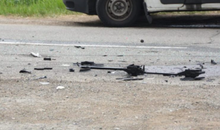
Accident in "Plepat e Kardhiqit", German hits pedestrian in Gjirokastra
2025-04-25 18:36:02
Begaj and Osmani pay homage near the body of Pope Francis in the Vatican
2025-04-25 18:17:28
He raped an OSHEE employee, a 38-year-old man is wanted in Tirana
2025-04-25 18:04:30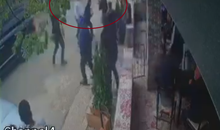


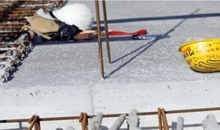
62-year-old man dies after falling from height while working in Golem
2025-04-25 17:15:29
Russian general killed in Moscow bomb blast
2025-04-25 16:58:28
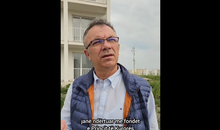

Tirana/ Drunk 22-year-old breaks equipment, father and son punch her
2025-04-25 16:20:12



Meta: Pension increases will begin immediately with the vote for No. 1
2025-04-25 15:29:47
Trump: Crimea will stay with Russia, Zelenskyy knows this
2025-04-25 15:20:27
Silent deforestation from illegal logging, fires, mining and neglect
2025-04-25 15:11:12
New Moon challenges, opportunities for these two signs
2025-04-25 15:01:38
Accident on the Gjirokastër-Tepelena axis, German driver hits 38-year-old woman
2025-04-25 14:49:59
Improve eye health, 10 foods you should definitely add to your daily meals
2025-04-25 14:41:31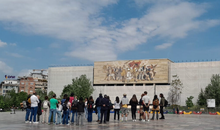
Tourism falters in March, foreigners fall by 2.7 percent
2025-04-25 14:31:59
Fiscal Peace in Albania: A Dangerous Deal with the Past
2025-04-25 14:24:48
Selling cannabis at Kombinat, 25-year-old arrested
2025-04-25 14:19:32

Rama's show with Vlora airport, will it end up abandoned like Kukësi?
2025-04-25 14:01:06

Arrested for stalking Dibra hospital director, house arrest for Irini Shehu
2025-04-25 13:41:48
Incidenti në Dibër, Berisha: Provokacion i ulët i bixhozgjiut Blendi Klosi
2025-04-25 13:32:40
Police officer arrested for driving ambulance while drunk in Vlora
2025-04-25 13:27:02
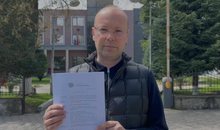
DP denounces the mayor of Maliq, Gëzim Topçiu, to SPAK
2025-04-25 12:55:50

Woman jumps from the eighth floor of the building in "Don Bosko"
2025-04-25 12:34:23

DP's program for medicine/ Alimehmeti: Healthcare needs urgent reforms
2025-04-25 12:20:11



Eni Vasili elected General Director of RTSH
2025-04-25 11:40:27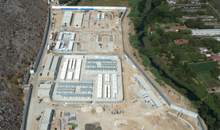


Serious accident in the Kalimash Tunnel, suspected victims
2025-04-25 11:05:23
Gjimnazisti vret shokun dhe plagos tre të tjerë
2025-04-25 10:59:57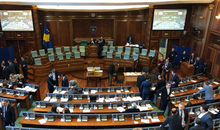
Kosovo Assembly constitution fails again, VV candidate rejected
2025-04-25 10:42:29
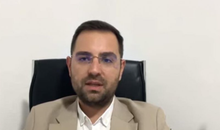





Begaj leaves for Italy, will attend Pope Francis' funeral
2025-04-25 09:29:14
Farewell to Pope Francis, over 128 thousand believers in homage in 48 hours
2025-04-25 09:21:28
Asphalt campaign for votes in the villages of Mati
2025-04-25 08:59:25

Foreign exchange/ How much foreign currencies are bought and sold today
2025-04-25 08:40:05
Albania needs 20 years to be classified in the group of high-income countries
2025-04-25 08:35:33
Horoscope, what do the stars have in store for you today?
2025-04-25 08:21:37
What is the weather expected to be like today, the forecast for this Friday
2025-04-25 08:09:26
Posta e mëngjesit/ Me 2 rreshta: Çfarë pati rëndësi dje në Shqipëri
2025-04-25 07:53:43
"Rama waves his passport in vain", Noka: Our strong point is the program,
2025-04-24 22:56:22


Kryemadhi: I like going to SPAK, I make jokes
2025-04-24 22:21:02

Tirana/ The young man is brutally raped and taken hostage
2025-04-24 22:03:32



DW: Thousands of people at the "March of the Living" at Auschwitz
2025-04-24 21:19:06

A party that has always thought about Albania...
2025-04-24 20:52:51
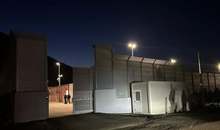
Gjadri Camps, ANSA: EC Committee for the Prevention of Torture soon in Albania
2025-04-24 20:36:39


39 killed in latest Israeli attacks on Gaza
2025-04-24 19:57:02

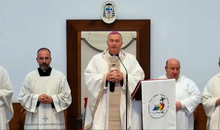
US and OSCE representatives attend mass for Pope Francis at St. Paul's Cathedral
2025-04-24 19:08:45

The world's youngest billionaire! Who is Lucy Guo, founder of ScaleAI?
2025-04-24 18:53:51

